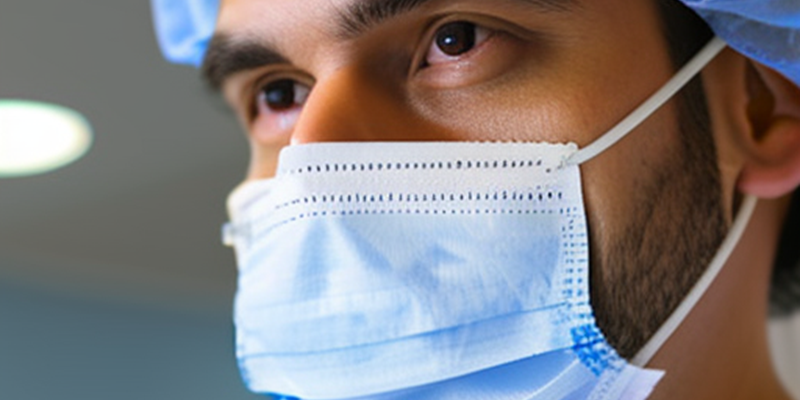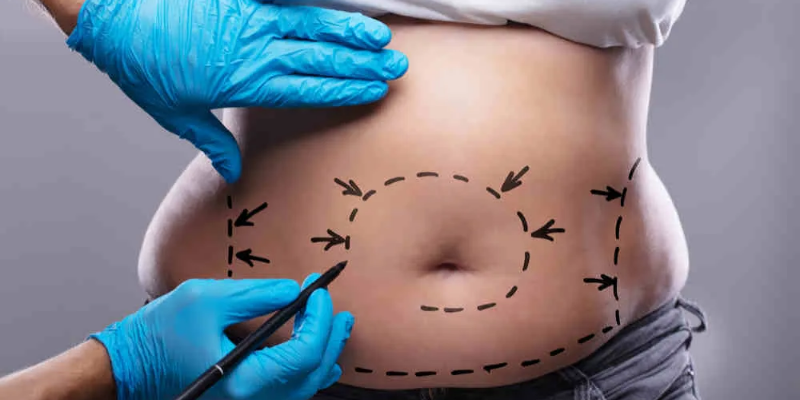Per Weightloss Surgery Diet
No matter what kind of bariatric surgery is being done, all patients must follow a per weightloss surgery diet before the surgery. If you think about it, the idea of drinking only liquids for two weeks might sound awful and scary. But in this blog, we hope to explain what the per weightloss surgery diet is for, what can happen if you don’t follow it, and how to do it. So get your drink and sit down, and let’s get started!
As a bariatric surgeon, we know how hard it can be to even consider giving up solid foods before weight loss surgery. During these two weeks, we’ve seen a lot of patients have trouble. But, despite what you might think, this isn’t to make you suffer! In fact, we only let patients drink liquids before surgery to lower the risk of the procedure.
Per Weightloss Surgery Liquid Diet
Before surgery, a lot of people have extra fat in their bodies or in their livers. The surgeon has to move the liver so that he or she can get to the stomach to do the bariatric surgery. And the more fat there is in and around the liver, the harder it is for the surgeon to move around it in a safe and effective way. This can cause the patient to be put under anesthesia for a longer time, which raises their risk of complications and their medical bills. On the two-week liquid diet, the patient loses enough weight to make the liver smaller. This makes it easier for the surgeon to move around the liver.
The pre-op liquid diet will include protein shakes, sugar-free drinks, sugar-free gelatin, sugar-free popsicles, and broth that has been approved.
We always tell our patients to drink at least 64 ounces of sugar-free liquids every day and five protein shakes every day. Patients can’t drink carbonated drinks like soda, sparkling water, milk, alcohol, etc., and each serving of any drink shouldn’t have more than 10 calories. We also suggest that patients limit their caffeine intake to two 8-ounce servings a day. This means that coffee lovers can still enjoy their favorite drink (with sugar-free sweetener, not sugar).
Tips For The Pre-Op Liquid Diet For Weight Loss
The liquid diet before bariatric surgery is hard, there’s no doubt about it. So, we strongly suggest that both mentally and physically, our patients get ready for the challenge ahead.
Before you start the liquid diet, you should go to the store and buy all the food you will need for the next two weeks. If you wait until the last minute to buy the protein shakes, gelatin, and broths, you might not be able to stick to the plan. You want to set yourself up for success right from the start.
Find A Way To Get Help And Hold Yourself Accountable
We suggest that people who have had bariatric surgery find a support group. This could be friends, family, or a group of current or former patients at your bariatric clinic. By asking for help, you not only hold yourself accountable, but other people do as well. We have seen for ourselves that patients who try to do everything on their own (pre- and post-op meal plans) don’t lose as much weight as those who get help.
The liquid diet for two weeks can be scary. It is very important to get your mind ready for the challenge. Remind yourself that this is only temporary and part of a bigger plan.
Even though the bariatric pre-op liquid diet is designed to help you lose weight quickly before surgery, don’t let the number on the scale get you down. If you aren’t losing weight the way you want to, you may be more likely to cheat because you may think, “What does it matter?”
We know that the liquid diet before surgery can be scary, especially if you’ve never been on a diet with so many rules before. But you need to be sure you can stick to the liquid diet before surgery. If you don’t, your surgeon may have to cancel or reschedule your surgery. The liquid diet before weight loss surgery is a very important step, and all patients have to do it, so you are not alone.
Things To Avoid Before Weight Loss Surgery
Before you can have bariatric surgery, you will have to stop smoking. This will lower the chance that you will have problems after the surgery. Not only is smoking bad for your health, but using tobacco before and after weight loss surgery can increase the risks of the surgery and make it take longer to heal.
We all know that smoking can lead to a number of health problems, such as heart disease, blood clots, chronic obstructive pulmonary disease (COPD), and a higher risk of getting cancer. In fact, smoking is the most preventable cause of death among American adults. Obesity is the second most preventable cause of death.
The CDC says that about 16 million people have a disease that cause by smoking. And for every person who dies because of smoking, 30 more are seriously hurt by an illness cause by smoking.
Why Should You Quit Smoking Before Weight Loss?
If you don’t quit smoking before bariatric surgery, you run a very high risk of serious complications. This is on top of the health risks that come with smoking regularly. Studies have shown that smokers are twice as likely to have serious problems after surgery as people who don’t smoke. Also, people who use tobacco products regularly are 1.5 times more likely to have less serious problems after surgery.
As your body heals from surgery, you may have trouble breathing and your immune system may weaken. If you smoke, your lungs have probably already damaged, which makes it hard to get enough oxygen to heal. This can make it harder for your lungs to fight off infections, making you more likely to get pneumonia or other problems with your lungs.
Ulcers are common in adults who smoke, but after bariatric surgery, the chance of getting an ulcer goes up a lot. In a healthy adult, getting blood to the stomach helps ulcers heal on their own. But because the stomach is smaller after surgery, less blood can get to it. This makes it harder for ulcers to heal.
Gastric Bypass Surgery Weight Loss Procedure
The gastric bypass surgery weight loss procedure is only one step on a journey towards long-term health and weight loss. Patients are encouraged to make lifestyle changes, such as exercising regularly and eating healthy meals, in order to maintain the results of their surgery. Gastric bypass surgery for weight loss is a major procedure and should only be considered after exploring all other options with your doctor or healthcare provider. Following the advice and guidance of your medical team can help ensure that you are making the best decision for yourself and your health.

It is important to remember that gastric bypass surgery weight loss procedure, although it can provide significant weight loss benefits in the short term, does not guarantee long-term success without supplementary lifestyle changes. It is important for individuals who have undergone this procedure to commit to making healthy choices when it comes to weight loss surgery diet and exercise in order to maintain successful results in the long run. With dedication, gastric bypass surgery can be an effective tool for achieving a healthier lifestyle. With dedication and commitment, gastric bypass surgery can be a successful way to help reach your desired body weight.



